Close to Home...Post #13 Felt
In my fiber pursuits I consider myself first a weaver. That's the predominant technique for the pieces in the show, Close to Home, at the Artery which, by the way is up through December 1. (If you're just tuning in to this blog you can read here about the concept behind the show.) There are over 140 pieces in the show and most are woven. However, one end wall is devoted to felt. Felt, according to the dictionary, is a nonwoven fabric of wool, fur, or hair, matted together by heat, moisture, and great pressure. "Nonwoven fabric" is the key here. Most of the felt in the show is "matted together" by needle felting instead of the heat and moisture part. Just in case you are picturing me with a felting needle and a pile of wool I want you to know that there is a shortcut--thanks to a friend of mine who has a felting "loom". That's what they call it.
Felt, according to the dictionary, is a nonwoven fabric of wool, fur, or hair, matted together by heat, moisture, and great pressure. "Nonwoven fabric" is the key here. Most of the felt in the show is "matted together" by needle felting instead of the heat and moisture part. Just in case you are picturing me with a felting needle and a pile of wool I want you to know that there is a shortcut--thanks to a friend of mine who has a felting "loom". That's what they call it.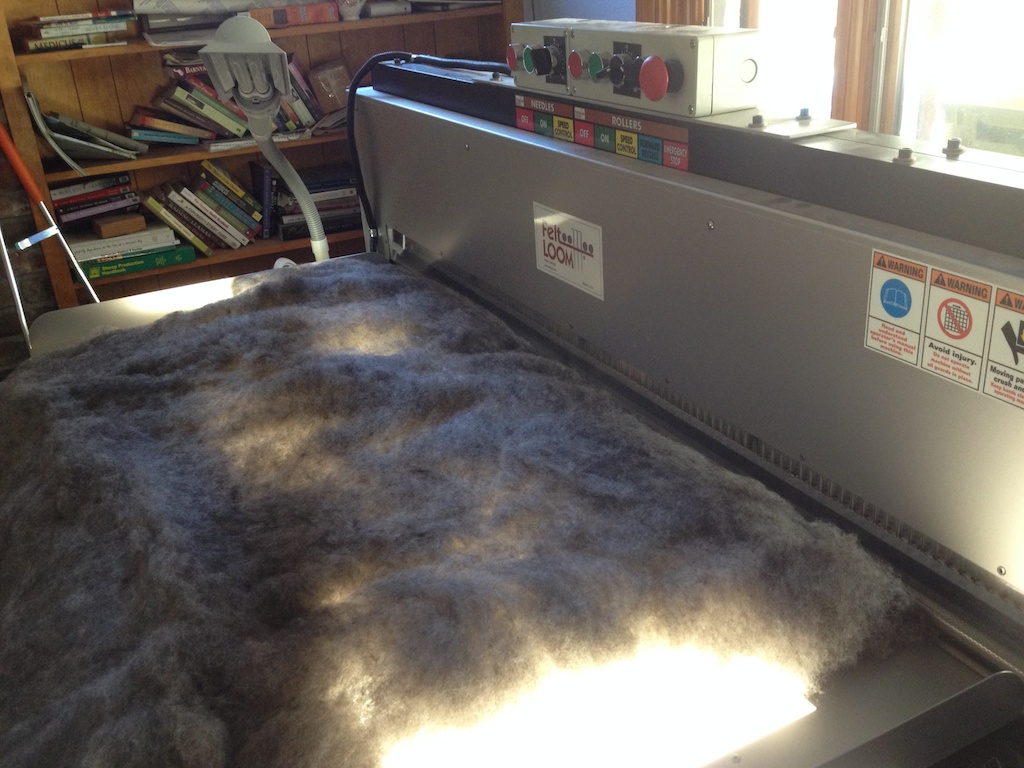 You feed a carded batt of wool in one side (over a light table)...
You feed a carded batt of wool in one side (over a light table)...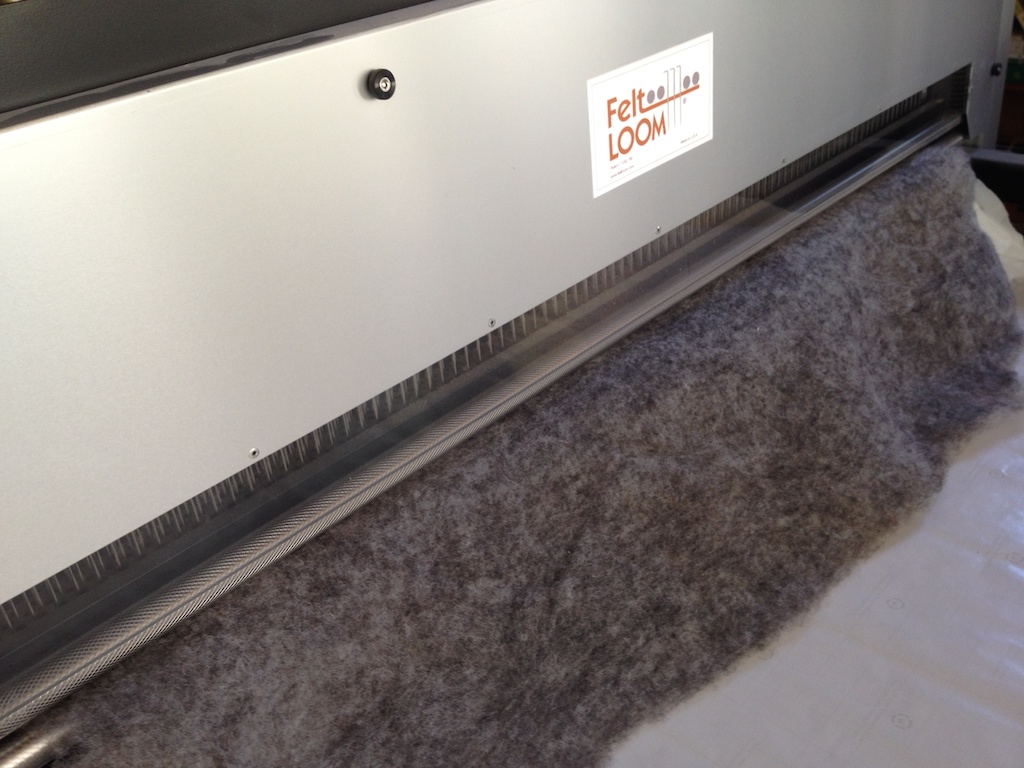 ...and out the other. The action of hundreds of barbed needles turns the wool into felt.
...and out the other. The action of hundreds of barbed needles turns the wool into felt.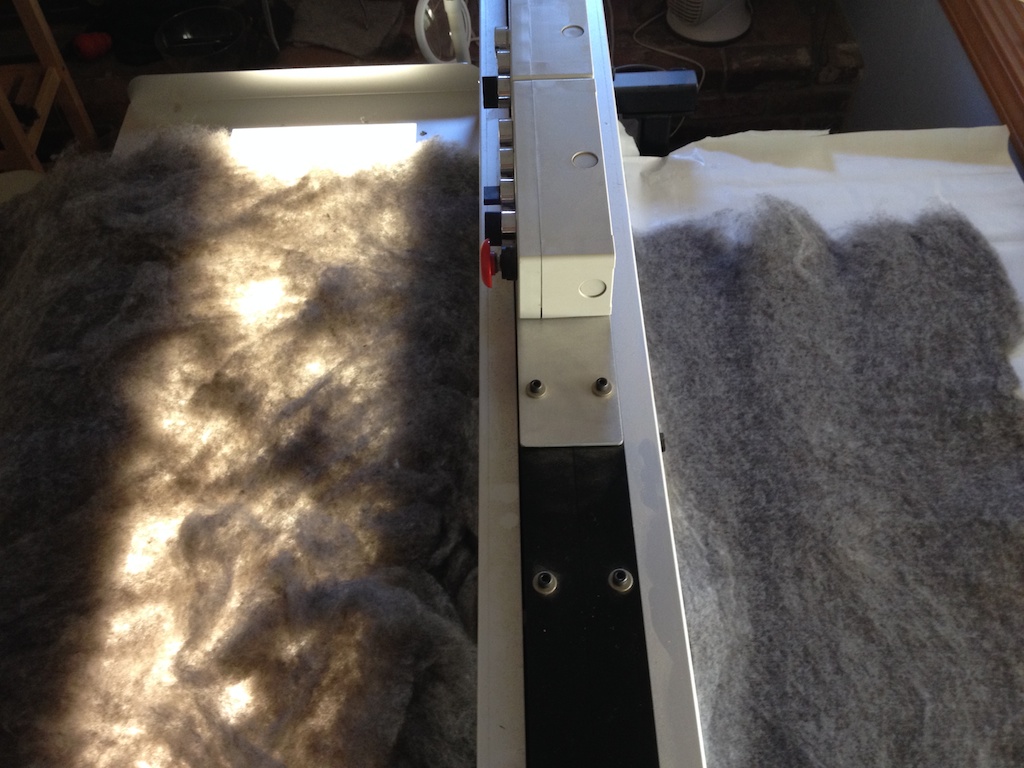 I fed each thin batt of wool in once and then layered them together to become a thicker piece.
I fed each thin batt of wool in once and then layered them together to become a thicker piece.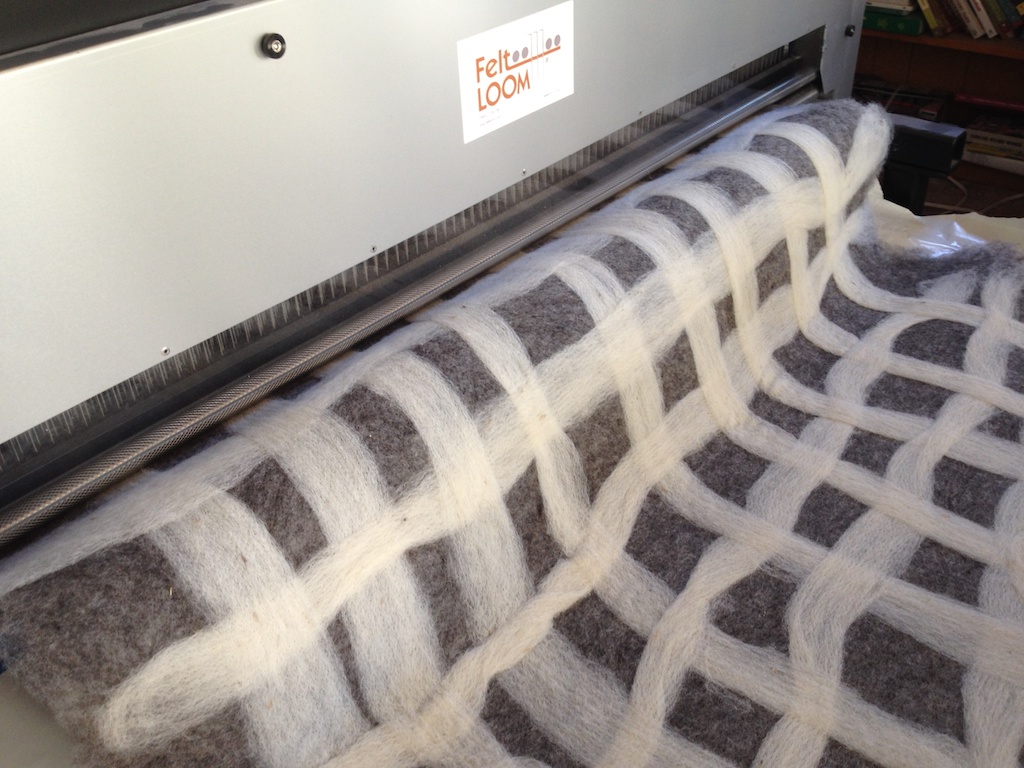 The final piece went through the needle loom about a dozen times. For several of my pieces I "wove" strips of roving and applied those to the felt part way through the process. I ended up with lots of placemats, trivets (the thick ones could double as stadium seats), and coasters.
The final piece went through the needle loom about a dozen times. For several of my pieces I "wove" strips of roving and applied those to the felt part way through the process. I ended up with lots of placemats, trivets (the thick ones could double as stadium seats), and coasters.


 After cutting out the placemats and other items I had felt strips left over. I wove those into wall hangings.
After cutting out the placemats and other items I had felt strips left over. I wove those into wall hangings.

 There was one piece of felt that my friends convinced me to leave alone and not cut up. I hung it on the wall at the Artery and it sold as a wall hanging.
There was one piece of felt that my friends convinced me to leave alone and not cut up. I hung it on the wall at the Artery and it sold as a wall hanging.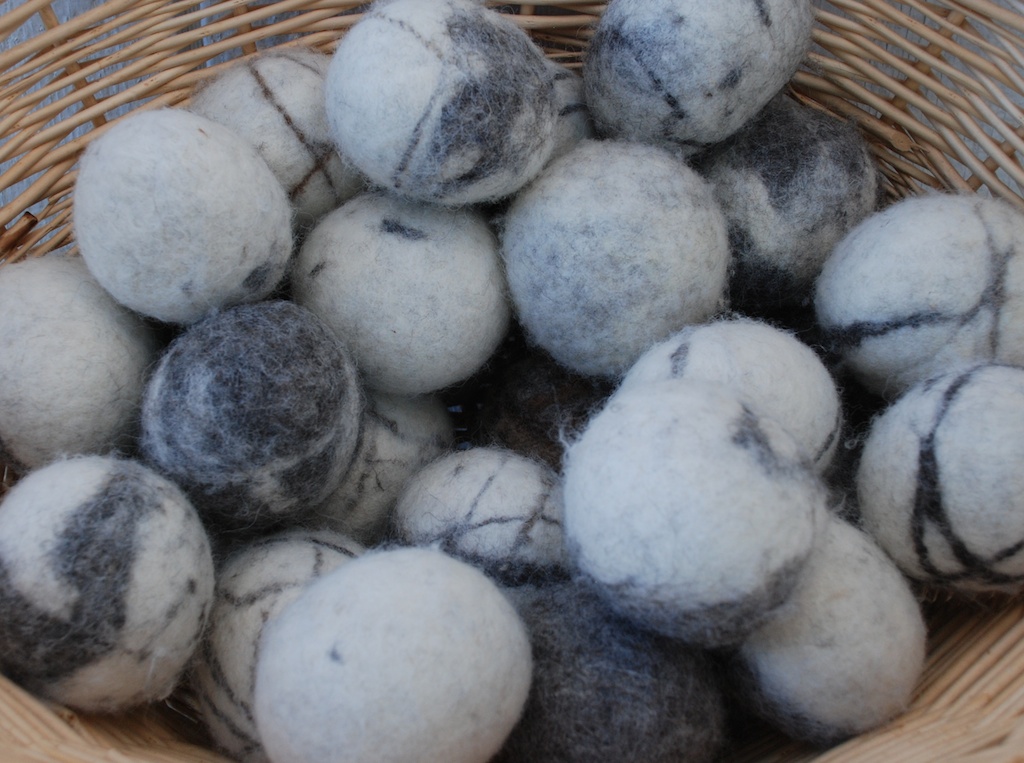 I did use the soap and hot water method in addition to needle felting to create these balls. They are sold as dryer balls (3 in the dryer help reduce drying time and soften clothes), or juggling balls, or cat toys, or therapeutic aids (at least that's why one friend bought some).
I did use the soap and hot water method in addition to needle felting to create these balls. They are sold as dryer balls (3 in the dryer help reduce drying time and soften clothes), or juggling balls, or cat toys, or therapeutic aids (at least that's why one friend bought some).
By the way, the wool for all of the felt items comes from either the Suffolk sheep on the Phillips Farm (see Blog Post #9) or the coarser britch wool of my own Jacob sheep.